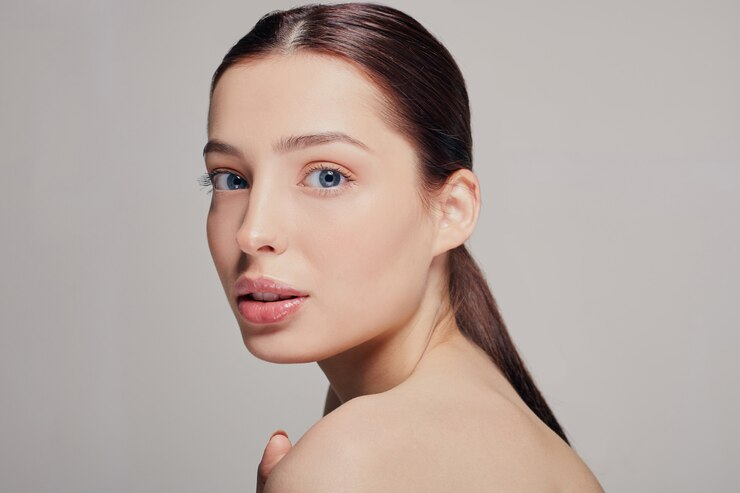How Can a Dermatologist Help with Hair Loss?
Hair loss is a common concern that affects people of all ages. It can be caused by several factors, including genetics, medical conditions, stress, and lifestyle choices. While mild hair shedding is normal, excessive hair loss may require professional attention. Seeking help from a Dermatologist in Silicon Oasis can be a crucial step in identifying the root cause and finding an effective treatment.
Causes of Hair Loss
Genetics – Hereditary hair loss, also known as androgenetic alopecia, is one of the most common causes of baldness in both men and women.
Medical Conditions – Certain health conditions, such as thyroid disorders, autoimmune diseases, and scalp infections, can contribute to hair loss.
Hormonal Imbalance – Hormonal changes, particularly during pregnancy, menopause, or due to underlying conditions like PCOS, can lead to hair thinning.
Nutritional Deficiencies – A lack of essential vitamins and minerals, such as iron, biotin, and vitamin D, can weaken hair health.
Stress and Lifestyle – Chronic stress, poor diet, and excessive use of hairstyling products can accelerate hair fall.
How a Dermatologist Diagnoses Hair Loss
A dermatologist plays a crucial role in diagnosing and treating hair loss. The process generally includes:
Detailed Medical History
The dermatologist will ask about medical history, family history, lifestyle habits, and recent illnesses to understand potential triggers.
Scalp Examination
A thorough scalp examination helps assess the condition of the hair follicles, scalp health, and possible underlying infections or inflammation.
Trichoscopy
Trichoscopy is a non-invasive procedure where a dermatologist examines the scalp under magnification to identify hair thinning patterns and follicular damage.
Blood Tests
In some cases, blood tests may be recommended to check for nutritional deficiencies, hormonal imbalances, or underlying medical conditions that could contribute to hair loss.
Treatments Provided by a Dermatologist for Hair Loss
Dermatologists offer various treatment options based on the underlying cause of hair loss. These treatments aim to stimulate hair growth and strengthen existing hair.
Medications for Hair Regrowth
Topical Treatments – Certain topical medications are commonly prescribed to promote hair growth and slow hair loss.
Oral Medications – In some cases, dermatologists may prescribe oral medications to manage hair loss caused by hormonal imbalances or autoimmune conditions.
Advanced Hair Loss Treatments
Platelet-Rich Plasma (PRP) Therapy – This involves drawing a small amount of the patient’s blood, processing it to extract growth factors, and injecting it into the scalp to stimulate hair follicles.
Laser Therapy – Low-level laser therapy can help improve blood circulation to the scalp, encouraging hair regrowth.
Microneedling – A dermatologist may perform microneedling to enhance the absorption of topical treatments and stimulate hair follicle activity.
Lifestyle and Dietary Recommendations
Dermatologists often provide guidance on maintaining a healthy diet rich in essential vitamins and proteins to support hair health. They may also suggest stress management techniques to reduce hair shedding caused by anxiety and lifestyle factors.
Preventive Measures for Hair Loss
To minimize hair loss, dermatologists often recommend adopting preventive measures such as:
Gentle Hair Care Routine – Avoid excessive heat styling, harsh chemicals, and tight hairstyles that can weaken hair strands.
Balanced Diet – Incorporating a diet rich in iron, biotin, and antioxidants supports healthy hair growth.
Stress Management – Engaging in activities like yoga, meditation, and regular exercise helps reduce stress-related hair loss.
Regular Scalp Hygiene – Keeping the scalp clean and free from buildup prevents scalp infections that may contribute to hair thinning.
When to See a Dermatologist for Hair Loss
It is advisable to consult a dermatologist if:
You experience sudden or excessive hair loss.
Your scalp shows signs of redness, scaling, or irritation.
You notice bald patches or significant hair thinning over time.
Hair loss is accompanied by other unexplained health symptoms.
Frequently Asked Questions
1. How long does it take to see results from hair loss treatments?
Results vary depending on the treatment method and individual response. Some treatments may show improvement within a few months, while others may take longer.
2. Can hair loss be reversed completely?
Reversing hair loss depends on the cause. Some types of hair loss, such as those caused by nutritional deficiencies or temporary conditions, can be reversed with proper treatment.
3. Are hair loss treatments safe for all age groups?
Most treatments are safe, but suitability depends on the individual’s condition and medical history. Consulting a dermatologist ensures the right treatment plan.
4. Can stress cause permanent hair loss?
Stress-induced hair loss is often temporary. However, chronic stress can contribute to long-term thinning if left unmanaged.
Conclusion
Hair loss can be distressing, but with timely intervention from a Dermatologist, effective treatments and preventive strategies can help restore hair health. Dermatologists offer expert diagnosis, advanced treatments, and personalized recommendations to manage hair loss and promote regrowth. If you are struggling with persistent hair thinning or shedding, seeking professional help is the best step toward maintaining a healthy scalp and strong hair.




Comments
Post a Comment